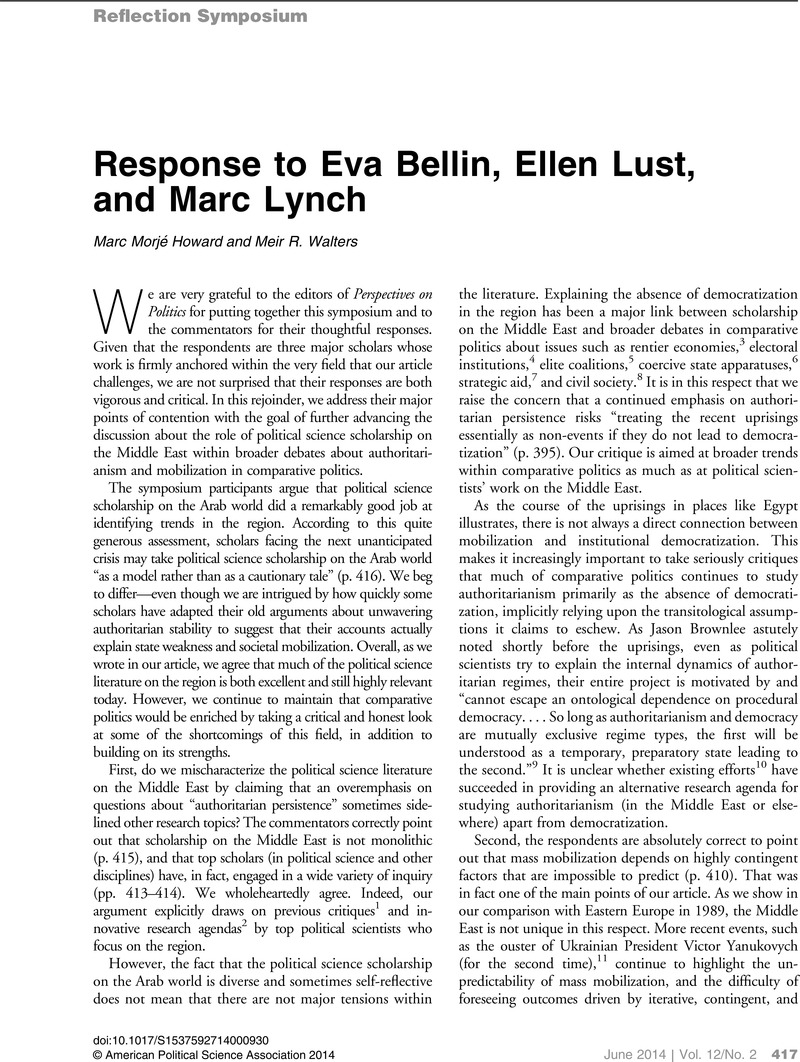Crossref Citations
This article has been cited by the following publications. This list is generated based on data provided by Crossref.
Grimm, Jannis
2015.
Eine Schwalbe macht noch keinen Frühling: Die arabischen Umbrüche in der politikwissenschaftlichen Literatur.
Zeitschrift für Vergleichende Politikwissenschaft,
Vol. 9,
Issue. 1-2,
p.
97.
Jones, Marc Owen
2016.
Protest, Social Movements and Global Democracy Since 2011: New Perspectives.
Vol. 39,
Issue. ,
p.
251.
Abbott, Lucy M
2016.
The conceptual public sphere and its problems: Habermas, political action and the Arab states.
Journal of International Political Theory,
Vol. 12,
Issue. 3,
p.
365.
Lynch, Marc
2016.
Political Science in Real Time: Engaging the Middle East Policy Public.
Perspectives on Politics,
Vol. 14,
Issue. 1,
p.
121.
Jones, Marc
2020.
Political Repression in Bahrain.



